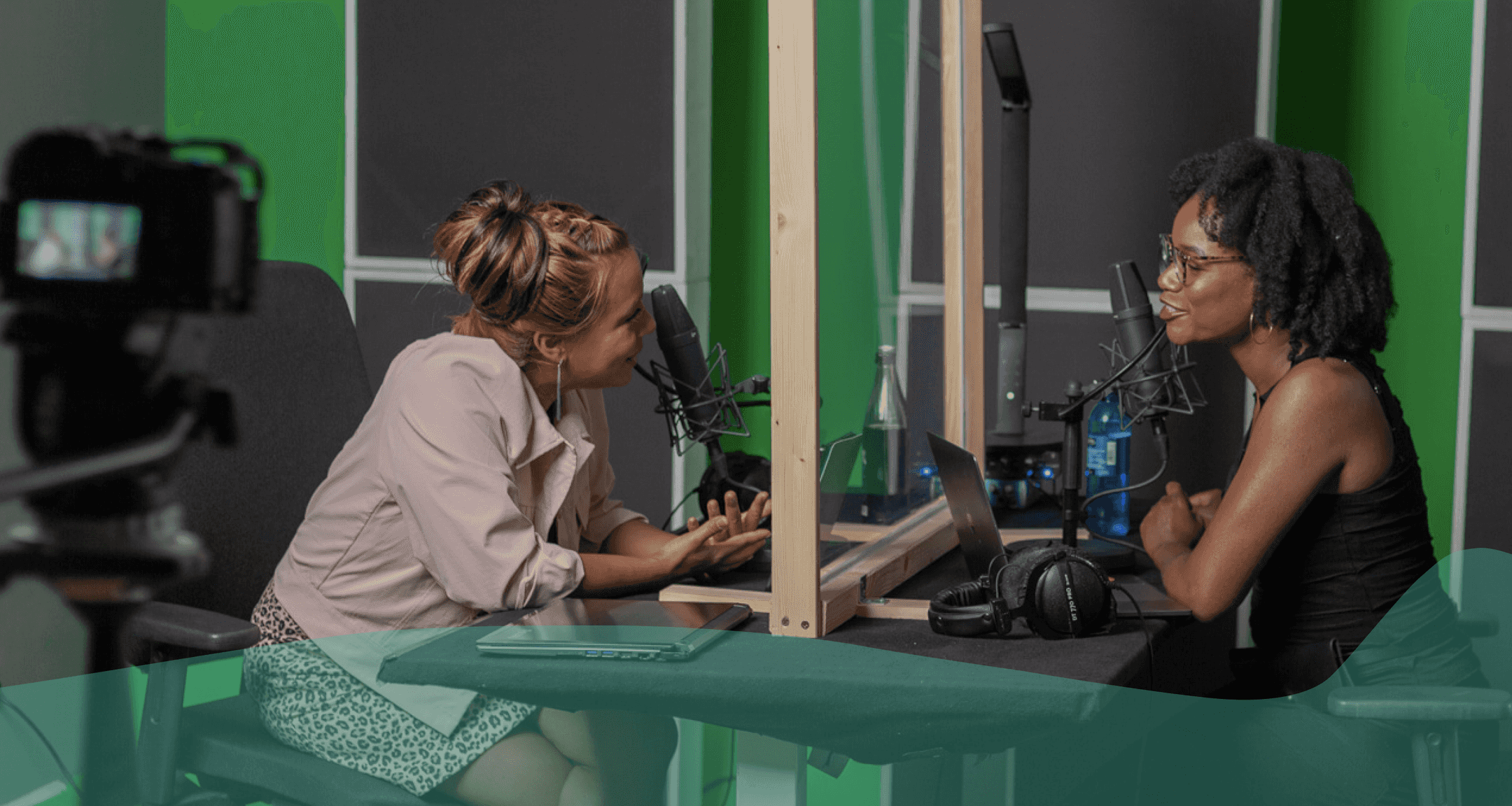


A podcast about how hormones shape our world.
Latest episode:
Who you gonna call? Mythbusters!
About Hormonal
Hormones affect everyone and everything: from skin to stress to sports.
But for most of us, they're still a mystery.
Even the way we talk about hormones makes no sense. ("She's hormonal.")
So let's clear some things up. Each week, Rhea Ramjohn is asking scientists, doctors, and experts to break it all down for us.
Subscribe on your favorite platform:
Episodes
- Season 1
- Season 2

Episode 0
August 25, 2020
A Sneak Peek at Season 2
As we work hard on Season 2 of the Hormonal podcast, we’re dropping into your feed with a special request, and a small behind the...
5 min

Episode 1
October 11, 2020
Hot or not? Birth control & sex drive
How birth control affects your sexual desire, self image, and weight fluctuations.
25 min
Support Hormonal & the period tracker that’s different from the rest.
Subscribe to Clue Plus
Episode 2
October 19, 2020
The ABC: Abortion & Birth Control
What’s it like to get an abortion and the surprising ways the pandemic is changing abortion access.
34 min
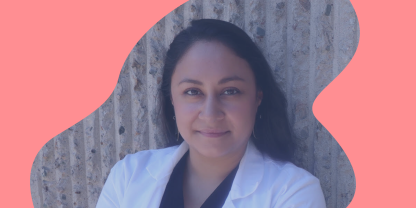
Episode 3
October 26, 2020
The many sides of side effects
Hormonal birth control: positive, negative, and neutral effects
33 min
Support Hormonal & the period tracker that’s different from the rest.
Subscribe to Clue Plus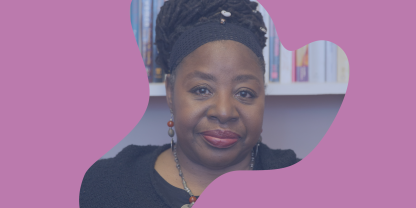
Reproductive choice and reproductive justice
with Dr. Loretta Ross
Episode 4
November 2, 2020
Reproductive choice and reproductive justice
Accessing birth control against the odds
35 min

Episode 5
November 9, 2020
Happy birthday, birth control
Controversy and celebration on the 60th anniversary of the pill
42 min

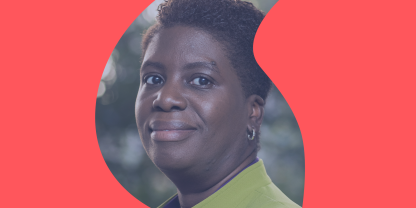
Episode 7
November 23, 2020
Risky business: birth control during COVID-19
COVID-19 is changing how we access birth control
30 min
Support Hormonal & the period tracker that’s different from the rest.
Subscribe to Clue Plus
Who you gonna call? Mythbusters!
with Lynae Brayboy, Amanda Shea & Hajnalka Hejja
Episode 8
November 30, 2020
Who you gonna call? Mythbusters!
Clue’s Science Team busts your birth control myths
37 min
Credits
Season 2
Executive Producer: Kassandra Sundt
Host: Rhea Ramjohn
Editorial Help from: Amanda Shea, Steph Liao, Nicole Leeds
Clue Design: Marta Pucci & B.J. Scheckenbach
Web Team: Yomi Eluwande, Jane Parr-Burman, Maddie Sheesley
Special Thanks: Trudie Carter, Ryan Duncan, Aubrey Bryan,
Claudia Taylor, Léna Calvarin, Lynae Brayboy
Mixing and recording help from: Bose Park Productions & Rekorder Studios in Berlin.
About Clue
Clue is a period tracking app that uses data and science to help women and people wih cycles to understand their bodies. It's also a menstrual and reproductive health encyclopedia.
Learn more about the Clue app and check out what Clue is doing to advance menstrual health research.
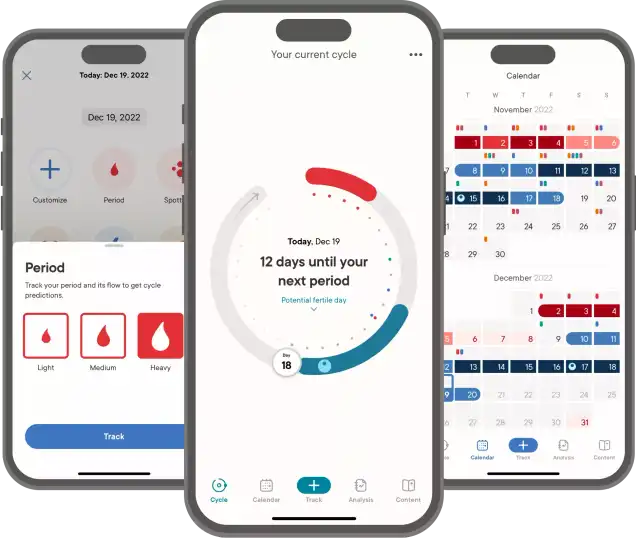
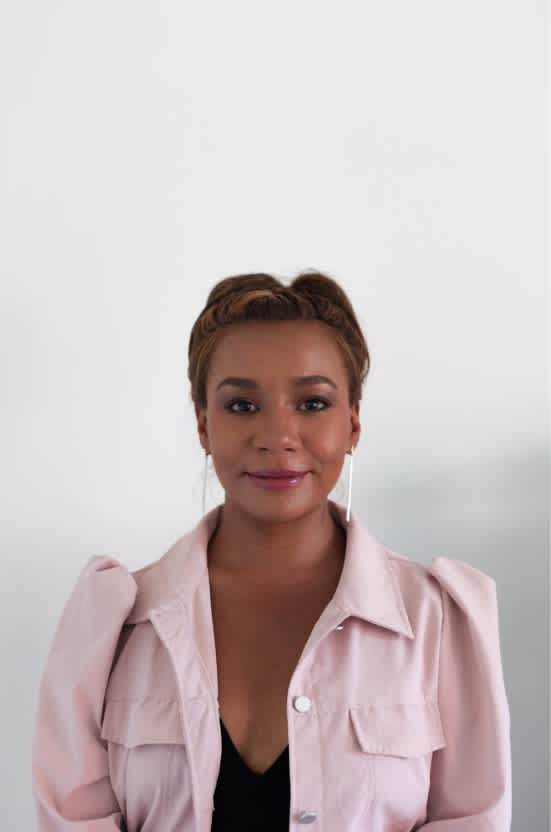
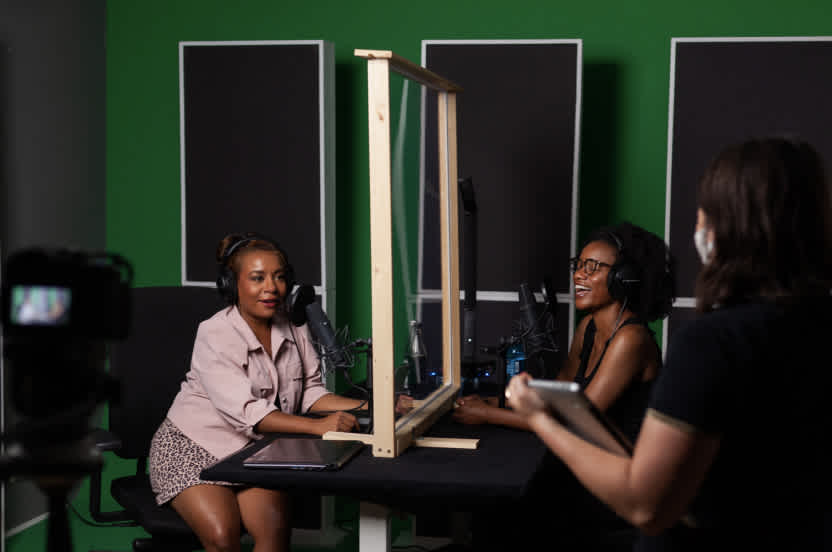
Rhea Ramjohn,
host of the Hormonal Podcast


Rhea Ramjohn,
host of the Hormonal Podcast
Your Host
The more knowledge we have about our hormones, our medical & menstrual care, and our reproductive rights, the more we empower ourselves and one another.
Hormonal has offered me the true privilege of speaking with people who have the expertise on the scientific knowledge about our hormones and cycles, as well as those sharing their lived experiences, caring for people with menstruation and how, all combined, shapes our lives everyday.
Gathering facts as well as personal stories are so vital to our understanding of our health, our his/herstories, and our cultures. I deem it a privilege because we haven't had many platforms nor opportunities for menstrual health information being broadly accessible.
Episode 1
Hot or not? Birth control & sex drive
Hot or not? Birth control & sex drive
How birth control affects your sexual desire, self image, and weight fluctuations.
About
Hormonal birth control can make you feel so many ways: sexier or less sexy, more adventurous or less, and more. We explore how it affects your self image and sexual desire, and how to talk about it with your doctor in our podcast, Hormonal.
Transcript
This transcript and interview were edited for clarity.
Hormonal birth control can make you feel so many ways: sexier or less sexy, more adventurous or less, and more. We explore how it affects your self image and sexual desire, and how to talk about it with your doctor in our podcast, Hormonal.
This episode of Hormonal is brought to you with financial support from Bayer. To learn more about Bayer’s support of Hormonal and other work here at Clue, check out helloclue.com/bayer.
Kassandra Sundt: Hey, this is Kassandra, I’m the Executive Producer of the podcast. On Hormonal we explore the science behind hormones. But we also talk about society and the world around us. On Hormonal, we know that there are lots of women who have periods and lots who don’t. We also know that there are people who aren’t women who have periods too. We also know we have listeners who have never had periods. We hope you feel welcome, even when a term that a guest uses maybe doesn’t apply to you.
At Clue, we believe that our identities are not determined by our bodies. Thanks for listening to Hormonal.
[Theme Music]
Rhea Ramjohn: Hi, I'm Rhea Ramjohn, and you're listening to Hormonal brought to you by Clue, the menstrual health app. This season on the Hormonal podcast, we’re focusing on birth control. How it affects us personally, physically, and politically.
A lot of people go on birth control for what seems like one simple reason, they're having sex and they don't want to get pregnant. Now, that's not true for everyone, but it is true for a lot of us. But when we're talking about birth control, especially hormonal birth control, these methods can actually change more than just our ability to get pregnant. As your body adjusts to a new method, you could feel different. Less or more sexy or, let’s just say, excitable. Less or more free to explore. Less or more desirable…less or more of a lot of things!
But, today, we're going to highlight that part of birth control: self image and sexual desire.
For this, we're turning to a Clue employee. Dr. Lynae Brayboy is the brand new chief medical officer here at Clue. Dr. Brayboy. Thanks for joining us on the Hormonal podcast.
Lynae Brayboy: My pleasure to be here.
Rhea Ramjohn: So, Dr. Brayboy, let's start with what we're talking about when we discuss how birth control could affect our self image. What have been your observations about how birth control and self image are related?
Lynae Brayboy: I think a lot of people with periods and women like you suggested, start birth control because they don't want to have a child. And so they have an idea of how many children they want. But once they start birth control, they might notice some changes. They might notice that maybe they don't feel excited or interested in sex as much as they would have before. So I think a lot of women maybe and people with periods don't necessarily think about that if they're taking hormonal birth control and may not be discussed actually by their physician or their health care provider.
Rhea Ramjohn: So, that's really interesting. Dr. Brayboy, I have not heard of that as a very specific side effect thus far. But that reminds me that we should kind of take a step back here. For people with periods, how does our sex drive typically work?
Lynae Brayboy: Right, so I think with a lot of people with periods it’s a complex issue, right? There’s not just one way that we have sex drive, which is our libido. There’s a lot of things in our biology from a medical perspective, that help drive libidio. But things such as stress, medical conditions, all of those things can affect a person who has periods, they can affect their libido. So what we find is that individuals who potentially, who take birth control, or oral contraceptives, is that they have a decrease in testosterone. And testerone is one of the things that actually help drive libido.
Rhea Ramjohn: Ok, got it.
Lynae Brayboy: There’s a lot of things. No one should think like, “Oh, if I don’t have testosterone, I don’t have sex drive.” People with periods could want to have sex to be close to their partner. Because they want a level of intimacy. But things like job situations, interpersonal connections, all of that can play an important role.
Rhea Ramjohn: Right absolutely. Now tell me, how are libido and sex drive related, and when we add a hormonal birth control option on top of this. I mean it’s already a pretty complex system, right?
Lynae Brayboy: It is very complex, and I think it's wholly understudied. So essentially your libido, your sex drive, which can be one and the same, I should say, it is one and the same, essentially comes from a myriad of factors. And so you have input that goes into your brain, and that input from your environment, I’m saying from a medical perspective, that input can affect the way you respond to sexual stimuli, can affect your inherent desire, can affect many things. So with the birth control pill, sometimes, the testosterone being lowered, which is a side effect of the birth control pill, which can be a positive one, or potentially a hazardous one, in that your libido might be lower, but that’s not the same for everyone. And again, it’s a complex process.
Rhea Ramjohn: Exactly, it's sort of the way that everyone’s sexuality can vary from you know, well, just everyone's sexuality can vary, period. The same way obviously our reactions, our physical reactions, to hormones and birth control, can vary as well.
Lynae Brayboy: Right. The good thing about the birth control pill though is that it’s liberating in that, you’re not having necessarily a period. You’re having a withdrawal bleed, so you can control that with a birth control pill. So it could liberate some individuals to have more sex, or they might feel now good about having sex because they don’t have the pressure of perhaps getting pregnant. So that in a different way the birth control pill is helpful to the sex drive. And again it could vary from person to person.
Rhea Ramjohn: Mhmm.
Lynae Brayboy: So other individuals might have other struggles. So because of the, the way that your cycle works, sometimes you might have moderate acne and because of the testosterone. And so to decrease that, some people take the birth control pill. That's one of the first line pills that's given to help with moderate acne. And so there are lots of other reasons that people may want to control how they menstruate.
Rhea Ramjohn: Yeah. Again, just from a personal point of view, I completely understand that. So speaking of self image, we reached out to Clue users on social media to ask them what questions they had about birth control, specifically in relation to self image. And there were a lot of concerns about weight gain. Dr. Lynae, can I call you Dr. Lynae?
Lynae Brayboy: Of course.
Rhea Ramjohn: Thanks. Dr. Lynae. Tell us, what does the scientific literature tell us about this?
Lynae Brayboy: Yeah so, a lot of people are very interested in it, does the birth control make you gain weight? And you know, unfortunately there’s not many wonderful studies that actually look at this, there’s conflicting studies. But there’s a Cochrane review, which is a type of review that looks at a lot of different types of studies. And it was done in 2016. And essentially they looked at progestin, or one of the components of the birth control pill, and also the implant, and also the IUD, and also the injection that has progestin only. And what they found is that there is limited evidence for weight gain. That potentially individuals gain less than 2 kilograms, or 4.4 pounds, in the first six months to twelve months. However, that only included a sample of 11,450 women. And so, potentially if this is something that you’re concerned about, you should discuss it with your doctor or your healthcare provider because this study may not be representative of all people with periods, if that makes sense.
Rhea Ramjohn: Ok, and you just busted a myth right there.
Lynae Brayboy: And if you feel like something is different, if you feel that you’re gaining weight. Then that’s something you can track in Clue. Right? And so if you have an experience, you can take that to your health care provider and actually show them data, which is important.
Rhea Ramjohn: So speaking again about our Clue users. // When we started asking Clue users about side effects to birth control. A lot of people complained about depression and physiological effects.
Lynae Brayboy: That's right, yes.
Rhea Ramjohn: As you mentioned before and they complained often that their doctors were not taking them seriously.
Lynae Brayboy: Right.
Rhea Ramjohn: So Dr, Brayboy, what should people be looking out for when they are starting the hormonal birth control pill?
Lynae Brayboy: Sure. I think, you know, tracking your symptoms is amazing. Right. And that's something you have the ability to do in the Clue app. So if you start feeling that you don't want to participate in the same activities that you were participating in before, you don't have the same pleasure with certain foods or certain, you know, hobbies, then if you can actually document that what you can in the app and show that to your health care provider, I think that it's real data that you really can't deny. You can't say, “I think you know.” And I think a lot of health care providers have the traditional teaching that, no, that's not the case. But I think we have newer data that definitely suggests that depression is a side effect and can be debilitating for many, many people with periods. So it's important that, one, if you feel that your health care provider isn't taking you seriously, that you document the data and that you then perhaps get a second opinion. And that's OK. That's everyone's right to do that.
Rhea Ramjohn: Um, just to go back a little bit, though, to exactly this point, as as you pointed out, a lot of doctors don't take the patients seriously when they're on hormonal birth control, saying that I feel some sort of depression. What would you say about our listeners who say, "Look, I gained five to ten kilos from being on this hormonal treatment, or this new form of birth control. And I feel like doctors dismiss me about my weight gain." So what do you think about this? Does it need to actually be studied more, or how do we help people who are taking hormonal birth control feel like they're being heard about the changes in their body?
Lynae Brayboy: If you feel that you have gained weight, then that's something you can track. So perhaps it could be a mood issue. Right? So perhaps your moods have changed and so perhaps you eat a little bit more for comfort. Perhaps your appetite is stimulated. You know, sometimes when you're feeling depressed, you don't feel like exercising or feel like going to the gym. And so it's not that they're not interconnected. With the pill itself, there's no associated weight gain. But with the side effects of the pill, no one can actually say that, right? And it's a complicated thing to study. You know, am I over eating because I'm depressed? Right? So I think that, again, keeping track of how you feel, keeping track of what you're eating as well. And those are both things you can do with technology right on your phone, which I think is amazing. And then you bring your phone to your appointment, and you say, “This is what happened.”
Rhea Ramjohn: Absolutely. I really appreciate that we can talk about this because it does seem to me as though there's not enough mental health actually discussed in correlation to our birth control methods or simply to our hormones.
Lynae Brayboy: Yeah.
Rhea Ramjohn: Do you have any comments on side effects or how to talk to your doctor, actually, before I move on to the next point?
Lynae Brayboy: Yeah, I mean, one of the things that when you go to your obstetrician gynecologist or your family doctor and you're taking the birth control, there's several things that, you know, people should be asking you. And that is, you know, how is your bleeding? How are you feeling on the birth control and how, how do you feel about yourself in general? And these are just normal screening questions that you would be asked. If you're not asked them, though, there's nothing to prevent you from bringing them up in your own advocacy. And so perhaps, you know, one of the big questions I think that's often skipped over in an OBGYN visit is how are you? How is your sex life? Right? Because birth control is so tied to everything that we do. And some women and people with periods may feel liberated by taking the birth control pill. Right. Because it frees them from having sex associated with conceiving.
Rhea Ramjohn: Right.
Lynae Brayboy: But others may feel very inhibited because, again, of the side effects that we just discussed. And so they may feel depressed and that can affect their self-image. If they potentially eat to perhaps feel better than perhaps they can gain weight. And that could further affect their self-image. So I think there's a lot that, you know, in a 20 minute visit with your gynecologist that may not be addressed, but it's something that you could say, you know, I'd like to speak about this more. With a second visit, perhaps.
Rhea Ramjohn: Alright. So, not to be too corny, but you do hear that often, that “Individual experiences may vary” and what I like about this conversation that we’re having is that we are talking actually about a bunch of different experiences, and one thing might not be true for every person.
So, let’s talk more about this, but first we’re going to take a quick break.
[AD BREAK]
Hormonal is brought to you by Clue. The period tracking app, and menstrual health encyclopedia.
And Clue needs your help. Not only to fund the work here at clue, bringing you an app that takes your cycle seriously, but to fund important research, support data privacy, and keep the app free for everyone.
If you believe in that mission, become a Clue Plus member. And check out Clue-dot-plus to learn more.
Alright, back to the show.
Rhea Ramohn: You’re listening to Hormonal, from Clue, the menstrual health app. I’m Rhea Ramjohn.
Ok, Dr. Brayboy. All of this conversation about how sexuality and arousal work for people with periods…. and how hormonal birth control works, brings me to kind of an anecdotal question. I’ve had friends who say their libidos were totally, quote unquote, killed by the pill. Is that typical?
Lynae Brayboy: From a medical perspective, I wouldn't say it's typical. It's possible. So, again, another way the pill works, not only does it stop the message from Luteinizing hormone, which actually makes the testosterone, but also it has your liver make a protein that actually binds the hormone. So even if you're making testosterone, potentially your liver is making something called sex hormone binding globulin, which is going around and scarfing up all the circulating testosterone. Plus, it's inhibiting testosterone from being made.
Rhea Ramjohn: Oh!
Lynae Brayboy: Yes. So if that's happening, potentially you have a very...your libido might be extremely extinguished. But other people may react differently. Everyone is different. Right. And the only way to know how you feel, again, is to keep some track of that.
Rhea Ramjohn: So talking about people who might be taking medications that affect their hormones or their creation of testosterone. How does that affect our trans siblings? How does that affect trans people with periods?
Lynae Brayboy: Right. So those individuals who are transitioning are taking testosterone. Usually if they're transitioning from female to male, then they would be taking testosterone. But if you're taking a birth control pill and you're taking testosterone, you might be actually undoing what you're doing. If that makes sense. So typically in trans individuals, they might want to use something else that can help regulate their menstruation. So an IUD, perhaps, an intrauterine device, one that either has hormones or no hormones. So the one that doesn't have hormones, that one is made out of copper. You can have a little bit heavier bleeding, but at least you don't have the hormonal impact.
Rhea Ramjohn: That's right.
Lynae Brayboy: However, if you have the levonorgestrel progestin IUD inserted, there's less systemic effects. It's just localized effects. And so perhaps they won't have the heavy bleeding. However bleeding patterns can vary from person to person.
Rhea Ramjohn: Dr. Brayboy, what about a cycle and someone's sex drive. In season one, we learned that everybody has a hormonal cycle.
Lynae Brayboy: Yeah, definitely everyone does. And things change throughout that cycle.// It’s a complex system. There are lots of things that can be going on. So at the beginning of your menses, so that’s actually when you start bleeding, the first full flow day is day one. You might not feel so sexy. And then as you head towards ovulation. Then you might start to feel an uptick in maybe arousal, maybe fantasies, desires. And that’s possible. But again, it’s not abnormal if you don’t feel things in conjunction with your cycle. Many different factors play different roles, if that makes sense.
Rhea Ramjohn: Yeah absolutely. And because everyone is different, that’s why it’s so important to track our feelings as well as we go day to day. So how might a BC method affect our feeling of sexiness?
Lynae Brayboy: Well, I think the birth control pill or birth control method can affect different people in different ways. And it’s not true for everyone. So some people feel absolutely liberated from the fact that they’re not going to get pregnant. Because the birth control is protecting them from that. And other individuals may experience spotting or break through bleeding on their different method, and they may not feel like intercourse because of the bleeding. So it varies from person to person. Whatever you might be having, you want to make sure you are keeping track of it. Then you can discuss data with your healthcare provider, and help select the best method that works for you and your lifestyle. But unfortunately, I just want to tell you Rhea, you know sexuality in people with periods is really understudied. And unfortunately, individuals who have difficencies or lack of libido or sex drive, there are not a lot of treatment options for them. And it’s something we definitely need more research and work on.
Rhea Ramjohn: Yeah, I back that 1000%. Okay, are there methods on average that improve someone's sex life. If you're on the pill, for example, and switch to another method? Could that switch to something else, improve a hormone level that frankly, in this case, as you mentioned, testosterone, that makes you, frankly, a little more turned on?
Lynae Brayboy: Yeah. So if you eliminate the estrogenic components, that is the ethinylestradiol, which is an overwhelmingly in most of the oral contraceptive pills, then yes, you could potentially eliminate one way that testosterone is perhaps inhibited. But it won't, it won't completely return you necessarily to your baseline. So perhaps people who are interested in going back to how they were before they even started hormonal contraception should consider physical barriers. So condoms. And those individuals might feel that, "Yes. Okay, I'm back to baseline." And there's been lots of people that I've seen on social media who've talked about just being, just miserable. And as soon as they stopped the hormonal contraceptive, then they were able to return to their baseline.
Rhea Ramjohn: So that brings me to my last question on this point, which is how long should someone try a method, which they may realize is actually stifling their sex drive, until, or perhaps interfering with their self image, until they talk to their doctor?
Lynae Brayboy: So usually when your doctor prescribes or your health care provider prescribes a birth control method, they'll usually have you come back in a month because they want to see how you're doing and they want to make sure there's no abnormal bleeding which can be associated with starting a new method, and you can usually have abnormal bleeding for up to three to six months on various methods. And so usually you'd come back in one month, to make sure you're doing OK and then again at six months. And I think if it's, you know, six months might be too long for you. And, you know, if at one month already you feel pretty down or feel that your life is altered by the side effects. At that point, perhaps you should consider switching to a different method. That might be a little early. Your doctor may want to have you wait for six months. But again, if it's impacting you to the point where this is, it's ruining your life, you know, then waiting six months probably wouldn't be the best.
Rhea Ramjohn: Dr. Lynae, I could talk to you for hours, but I have our last question for today. When it comes to the topics that we've been discussing or around the topics of birth control in general, what do you think should be studied more? What questions are still out there?
Lynae Brayboy: Wow, well, I think that there's a lot that needs to be done in the trans population, right? I think as a clinician, as a trainee, I didn't learn much about trans medicine at all. And usually when I go to conferences, I hear very little research in the trans population. I actually went to a conference about a year ago that was about fertility and fertility options, and there was only one talk about fertility in trans individuals. And it was a multi day conference, it was an international conference. And that’s just reflective of what’s happening in the research world. That really a lot of people are not studying the fertility care of what happens to people who are trans. And I say that needs to change.
Also, we need more understanding of depression. Right. So many people know that they have depression. I remember I had a college classmate who said she'd never take birth control. She took it once and she felt that she was almost to the point of being suicidal. Those individuals need to be taken seriously. And I think that there needs to be more studies in the types of birth control that people take and how they can potentially feel on those birth control methods. And I think too, we need more effective methods. Right. I mean, we have some good methods, but we don't have a lot of research going on for alternative methods. Right. Not like I said, not everyone can take the birth control pill, the birth control pill's biggest risk is actually not weight gain. It's not depression, but it's biggest risk is actually blood clots. So there's a fourfold increase of having a blood clot in your leg or in your brain or in your lung that could lead to stroke. It can also lead to heart attack. And so there are a lot of women who just cannot take the birth control pill or even any hormonal method. And so we really need to find alternatives that work that are long acting, especially for people who don't want to get pregnant immediately. And also, we need men's birth control research because why is it always the person with the period who has to be responsible?
Rhea Ramjohn: I would like a little more partnership in that area. For all people!
Lynae Brayboy And there was actually a study that started but wasn't able to finish because the individuals who'd identified as male thought that they had side effects, such as headache fatigue, which is actually very common side effects, that individuals with periods who take birth control would have as well.
Rhea Ramjohn: Dr. Lynae Brayboy is the chief medical officer at Clue. She joins us in the studio here in Berlin. Dr. Brayboy, thanks for chatting with us today on Hormonal.
Lynae Brayboy Thank you. I appreciate it.
Credits
Rhea Ramjohn: Hormonal is hosted by me, Rhea Ramjohn! Our Executive Producer is Kassandra Sundt.
Editorial help from:
Amanda Shea
Steph Liao
Nicole Leeds
Special thanks to:
Marta Pucci
Trudie Carter
Maddie Sheesley
Ryan Duncan
Aubrey Bryan
Claudia Taylor
Léna Calvarin
Lynae Brayboy
Mixing and recording help from Bose Park Productions and Rekorder Studios in Berlin.
Thanks for listening to Hormonal. Please rate and subscribe, and tell a friend! Until next time, I’m Rhea Ramjohn.
Related links:
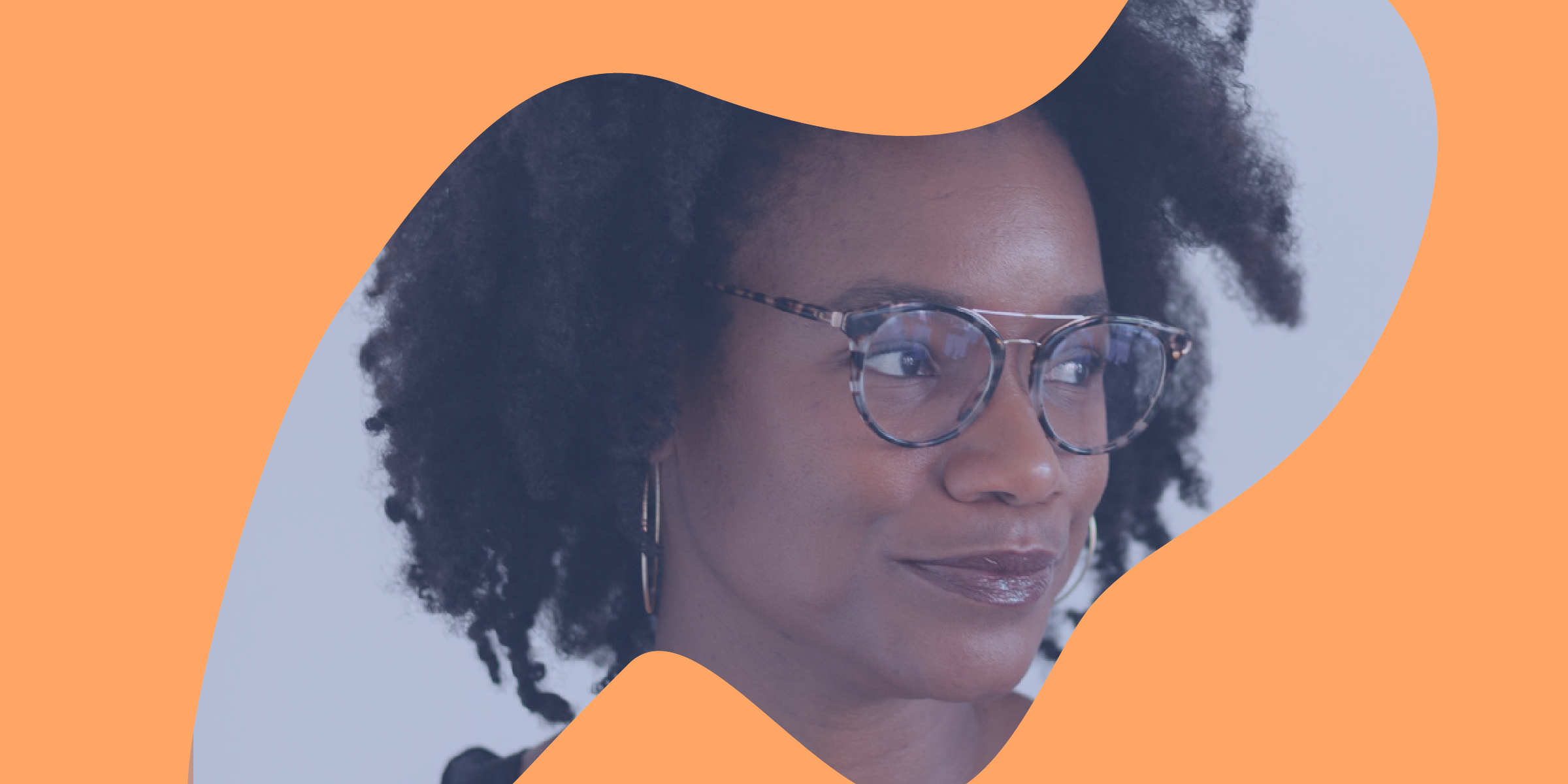
Episode 1
October 11, 2020
Hot or not? Birth control & sex drive
How birth control affects your sexual desire, self image, and weight fluctuations.
About
Hormonal birth control can make you feel so many ways: sexier or less sexy, more adventurous or less, and more. We explore how it affects your self image and sexual desire, and how to talk about it with your doctor in our podcast, Hormonal.
"With the pill itself, there's no associated weight gain. But with the side effects of the pill, no one can actually say that, right?"
Hormonal birth control can make you feel so many ways: sexier or less sexy, more adventurous or less, and more. We explore how it affects your self image and sexual desire, and how to talk about it with your doctor in our podcast, Hormonal.
This episode of Hormonal is brought to you with financial support from Bayer. To learn more about Bayer’s support of Hormonal and other work here at Clue, check out helloclue.com/bayer.
Kassandra Sundt: Hey, this is Kassandra, I’m the Executive Producer of the podcast. On Hormonal we explore the science behind hormones. But we also talk about society and the world around us. On Hormonal, we know that there are lots of women who have periods and lots who don’t. We also know that there are people who aren’t women who have periods too. We also know we have listeners who have never had periods. We hope you feel welcome, even when a term that a guest uses maybe doesn’t apply to you.
At Clue, we believe that our identities are not determined by our bodies. Thanks for listening to Hormonal.
[Theme Music]
Rhea Ramjohn: Hi, I'm Rhea Ramjohn, and you're listening to Hormonal brought to you by Clue, the menstrual health app. This season on the Hormonal podcast, we’re focusing on birth control. How it affects us personally, physically, and politically.
A lot of people go on birth control for what seems like one simple reason, they're having sex and they don't want to get pregnant. Now, that's not true for everyone, but it is true for a lot of us. But when we're talking about birth control, especially hormonal birth control, these methods can actually change more than just our ability to get pregnant. As your body adjusts to a new method, you could feel different. Less or more sexy or, let’s just say, excitable. Less or more free to explore. Less or more desirable…less or more of a lot of things!
But, today, we're going to highlight that part of birth control: self image and sexual desire.
For this, we're turning to a Clue employee. Dr. Lynae Brayboy is the brand new chief medical officer here at Clue. Dr. Brayboy. Thanks for joining us on the Hormonal podcast.
Lynae Brayboy: My pleasure to be here.
Rhea Ramjohn: So, Dr. Brayboy, let's start with what we're talking about when we discuss how birth control could affect our self image. What have been your observations about how birth control and self image are related?
Lynae Brayboy: I think a lot of people with periods and women like you suggested, start birth control because they don't want to have a child. And so they have an idea of how many children they want. But once they start birth control, they might notice some changes. They might notice that maybe they don't feel excited or interested in sex as much as they would have before. So I think a lot of women maybe and people with periods don't necessarily think about that if they're taking hormonal birth control and may not be discussed actually by their physician or their health care provider.
Rhea Ramjohn: So, that's really interesting. Dr. Brayboy, I have not heard of that as a very specific side effect thus far. But that reminds me that we should kind of take a step back here. For people with periods, how does our sex drive typically work?
Lynae Brayboy: Right, so I think with a lot of people with periods it’s a complex issue, right? There’s not just one way that we have sex drive, which is our libido. There’s a lot of things in our biology from a medical perspective, that help drive libidio. But things such as stress, medical conditions, all of those things can affect a person who has periods, they can affect their libido. So what we find is that individuals who potentially, who take birth control, or oral contraceptives, is that they have a decrease in testosterone. And testerone is one of the things that actually help drive libido.
Rhea Ramjohn: Ok, got it.
Lynae Brayboy: There’s a lot of things. No one should think like, “Oh, if I don’t have testosterone, I don’t have sex drive.” People with periods could want to have sex to be close to their partner. Because they want a level of intimacy. But things like job situations, interpersonal connections, all of that can play an important role.
Rhea Ramjohn: Right absolutely. Now tell me, how are libido and sex drive related, and when we add a hormonal birth control option on top of this. I mean it’s already a pretty complex system, right?
Lynae Brayboy: It is very complex, and I think it's wholly understudied. So essentially your libido, your sex drive, which can be one and the same, I should say, it is one and the same, essentially comes from a myriad of factors. And so you have input that goes into your brain, and that input from your environment, I’m saying from a medical perspective, that input can affect the way you respond to sexual stimuli, can affect your inherent desire, can affect many things. So with the birth control pill, sometimes, the testosterone being lowered, which is a side effect of the birth control pill, which can be a positive one, or potentially a hazardous one, in that your libido might be lower, but that’s not the same for everyone. And again, it’s a complex process.
Rhea Ramjohn: Exactly, it's sort of the way that everyone’s sexuality can vary from you know, well, just everyone's sexuality can vary, period. The same way obviously our reactions, our physical reactions, to hormones and birth control, can vary as well.
Lynae Brayboy: Right. The good thing about the birth control pill though is that it’s liberating in that, you’re not having necessarily a period. You’re having a withdrawal bleed, so you can control that with a birth control pill. So it could liberate some individuals to have more sex, or they might feel now good about having sex because they don’t have the pressure of perhaps getting pregnant. So that in a different way the birth control pill is helpful to the sex drive. And again it could vary from person to person.
Rhea Ramjohn: Mhmm.
Lynae Brayboy: So other individuals might have other struggles. So because of the, the way that your cycle works, sometimes you might have moderate acne and because of the testosterone. And so to decrease that, some people take the birth control pill. That's one of the first line pills that's given to help with moderate acne. And so there are lots of other reasons that people may want to control how they menstruate.
Rhea Ramjohn: Yeah. Again, just from a personal point of view, I completely understand that. So speaking of self image, we reached out to Clue users on social media to ask them what questions they had about birth control, specifically in relation to self image. And there were a lot of concerns about weight gain. Dr. Lynae, can I call you Dr. Lynae?
Lynae Brayboy: Of course.
Rhea Ramjohn: Thanks. Dr. Lynae. Tell us, what does the scientific literature tell us about this?
Lynae Brayboy: Yeah so, a lot of people are very interested in it, does the birth control make you gain weight? And you know, unfortunately there’s not many wonderful studies that actually look at this, there’s conflicting studies. But there’s a Cochrane review, which is a type of review that looks at a lot of different types of studies. And it was done in 2016. And essentially they looked at progestin, or one of the components of the birth control pill, and also the implant, and also the IUD, and also the injection that has progestin only. And what they found is that there is limited evidence for weight gain. That potentially individuals gain less than 2 kilograms, or 4.4 pounds, in the first six months to twelve months. However, that only included a sample of 11,450 women. And so, potentially if this is something that you’re concerned about, you should discuss it with your doctor or your healthcare provider because this study may not be representative of all people with periods, if that makes sense.
Rhea Ramjohn: Ok, and you just busted a myth right there.
Lynae Brayboy: And if you feel like something is different, if you feel that you’re gaining weight. Then that’s something you can track in Clue. Right? And so if you have an experience, you can take that to your health care provider and actually show them data, which is important.
Rhea Ramjohn: So speaking again about our Clue users. // When we started asking Clue users about side effects to birth control. A lot of people complained about depression and physiological effects.
Lynae Brayboy: That's right, yes.
Rhea Ramjohn: As you mentioned before and they complained often that their doctors were not taking them seriously.
Lynae Brayboy: Right.
Rhea Ramjohn: So Dr, Brayboy, what should people be looking out for when they are starting the hormonal birth control pill?
Lynae Brayboy: Sure. I think, you know, tracking your symptoms is amazing. Right. And that's something you have the ability to do in the Clue app. So if you start feeling that you don't want to participate in the same activities that you were participating in before, you don't have the same pleasure with certain foods or certain, you know, hobbies, then if you can actually document that what you can in the app and show that to your health care provider, I think that it's real data that you really can't deny. You can't say, “I think you know.” And I think a lot of health care providers have the traditional teaching that, no, that's not the case. But I think we have newer data that definitely suggests that depression is a side effect and can be debilitating for many, many people with periods. So it's important that, one, if you feel that your health care provider isn't taking you seriously, that you document the data and that you then perhaps get a second opinion. And that's OK. That's everyone's right to do that.
Rhea Ramjohn: Um, just to go back a little bit, though, to exactly this point, as as you pointed out, a lot of doctors don't take the patients seriously when they're on hormonal birth control, saying that I feel some sort of depression. What would you say about our listeners who say, "Look, I gained five to ten kilos from being on this hormonal treatment, or this new form of birth control. And I feel like doctors dismiss me about my weight gain." So what do you think about this? Does it need to actually be studied more, or how do we help people who are taking hormonal birth control feel like they're being heard about the changes in their body?
Lynae Brayboy: If you feel that you have gained weight, then that's something you can track. So perhaps it could be a mood issue. Right? So perhaps your moods have changed and so perhaps you eat a little bit more for comfort. Perhaps your appetite is stimulated. You know, sometimes when you're feeling depressed, you don't feel like exercising or feel like going to the gym. And so it's not that they're not interconnected. With the pill itself, there's no associated weight gain. But with the side effects of the pill, no one can actually say that, right? And it's a complicated thing to study. You know, am I over eating because I'm depressed? Right? So I think that, again, keeping track of how you feel, keeping track of what you're eating as well. And those are both things you can do with technology right on your phone, which I think is amazing. And then you bring your phone to your appointment, and you say, “This is what happened.”
Rhea Ramjohn: Absolutely. I really appreciate that we can talk about this because it does seem to me as though there's not enough mental health actually discussed in correlation to our birth control methods or simply to our hormones.
Lynae Brayboy: Yeah.
Rhea Ramjohn: Do you have any comments on side effects or how to talk to your doctor, actually, before I move on to the next point?
Lynae Brayboy: Yeah, I mean, one of the things that when you go to your obstetrician gynecologist or your family doctor and you're taking the birth control, there's several things that, you know, people should be asking you. And that is, you know, how is your bleeding? How are you feeling on the birth control and how, how do you feel about yourself in general? And these are just normal screening questions that you would be asked. If you're not asked them, though, there's nothing to prevent you from bringing them up in your own advocacy. And so perhaps, you know, one of the big questions I think that's often skipped over in an OBGYN visit is how are you? How is your sex life? Right? Because birth control is so tied to everything that we do. And some women and people with periods may feel liberated by taking the birth control pill. Right. Because it frees them from having sex associated with conceiving.
Rhea Ramjohn: Right.
Lynae Brayboy: But others may feel very inhibited because, again, of the side effects that we just discussed. And so they may feel depressed and that can affect their self-image. If they potentially eat to perhaps feel better than perhaps they can gain weight. And that could further affect their self-image. So I think there's a lot that, you know, in a 20 minute visit with your gynecologist that may not be addressed, but it's something that you could say, you know, I'd like to speak about this more. With a second visit, perhaps.
Rhea Ramjohn: Alright. So, not to be too corny, but you do hear that often, that “Individual experiences may vary” and what I like about this conversation that we’re having is that we are talking actually about a bunch of different experiences, and one thing might not be true for every person.
So, let’s talk more about this, but first we’re going to take a quick break.
[AD BREAK]
Hormonal is brought to you by Clue. The period tracking app, and menstrual health encyclopedia.
And Clue needs your help. Not only to fund the work here at clue, bringing you an app that takes your cycle seriously, but to fund important research, support data privacy, and keep the app free for everyone.
If you believe in that mission, become a Clue Plus member. And check out Clue-dot-plus to learn more.
Alright, back to the show.
Rhea Ramohn: You’re listening to Hormonal, from Clue, the menstrual health app. I’m Rhea Ramjohn.
Ok, Dr. Brayboy. All of this conversation about how sexuality and arousal work for people with periods…. and how hormonal birth control works, brings me to kind of an anecdotal question. I’ve had friends who say their libidos were totally, quote unquote, killed by the pill. Is that typical?
Lynae Brayboy: From a medical perspective, I wouldn't say it's typical. It's possible. So, again, another way the pill works, not only does it stop the message from Luteinizing hormone, which actually makes the testosterone, but also it has your liver make a protein that actually binds the hormone. So even if you're making testosterone, potentially your liver is making something called sex hormone binding globulin, which is going around and scarfing up all the circulating testosterone. Plus, it's inhibiting testosterone from being made.
Rhea Ramjohn: Oh!
Lynae Brayboy: Yes. So if that's happening, potentially you have a very...your libido might be extremely extinguished. But other people may react differently. Everyone is different. Right. And the only way to know how you feel, again, is to keep some track of that.
Rhea Ramjohn: So talking about people who might be taking medications that affect their hormones or their creation of testosterone. How does that affect our trans siblings? How does that affect trans people with periods?
Lynae Brayboy: Right. So those individuals who are transitioning are taking testosterone. Usually if they're transitioning from female to male, then they would be taking testosterone. But if you're taking a birth control pill and you're taking testosterone, you might be actually undoing what you're doing. If that makes sense. So typically in trans individuals, they might want to use something else that can help regulate their menstruation. So an IUD, perhaps, an intrauterine device, one that either has hormones or no hormones. So the one that doesn't have hormones, that one is made out of copper. You can have a little bit heavier bleeding, but at least you don't have the hormonal impact.
Rhea Ramjohn: That's right.
Lynae Brayboy: However, if you have the levonorgestrel progestin IUD inserted, there's less systemic effects. It's just localized effects. And so perhaps they won't have the heavy bleeding. However bleeding patterns can vary from person to person.
Rhea Ramjohn: Dr. Brayboy, what about a cycle and someone's sex drive. In season one, we learned that everybody has a hormonal cycle.
Lynae Brayboy: Yeah, definitely everyone does. And things change throughout that cycle.// It’s a complex system. There are lots of things that can be going on. So at the beginning of your menses, so that’s actually when you start bleeding, the first full flow day is day one. You might not feel so sexy. And then as you head towards ovulation. Then you might start to feel an uptick in maybe arousal, maybe fantasies, desires. And that’s possible. But again, it’s not abnormal if you don’t feel things in conjunction with your cycle. Many different factors play different roles, if that makes sense.
Rhea Ramjohn: Yeah absolutely. And because everyone is different, that’s why it’s so important to track our feelings as well as we go day to day. So how might a BC method affect our feeling of sexiness?
Lynae Brayboy: Well, I think the birth control pill or birth control method can affect different people in different ways. And it’s not true for everyone. So some people feel absolutely liberated from the fact that they’re not going to get pregnant. Because the birth control is protecting them from that. And other individuals may experience spotting or break through bleeding on their different method, and they may not feel like intercourse because of the bleeding. So it varies from person to person. Whatever you might be having, you want to make sure you are keeping track of it. Then you can discuss data with your healthcare provider, and help select the best method that works for you and your lifestyle. But unfortunately, I just want to tell you Rhea, you know sexuality in people with periods is really understudied. And unfortunately, individuals who have difficencies or lack of libido or sex drive, there are not a lot of treatment options for them. And it’s something we definitely need more research and work on.
Rhea Ramjohn: Yeah, I back that 1000%. Okay, are there methods on average that improve someone's sex life. If you're on the pill, for example, and switch to another method? Could that switch to something else, improve a hormone level that frankly, in this case, as you mentioned, testosterone, that makes you, frankly, a little more turned on?
Lynae Brayboy: Yeah. So if you eliminate the estrogenic components, that is the ethinylestradiol, which is an overwhelmingly in most of the oral contraceptive pills, then yes, you could potentially eliminate one way that testosterone is perhaps inhibited. But it won't, it won't completely return you necessarily to your baseline. So perhaps people who are interested in going back to how they were before they even started hormonal contraception should consider physical barriers. So condoms. And those individuals might feel that, "Yes. Okay, I'm back to baseline." And there's been lots of people that I've seen on social media who've talked about just being, just miserable. And as soon as they stopped the hormonal contraceptive, then they were able to return to their baseline.
Rhea Ramjohn: So that brings me to my last question on this point, which is how long should someone try a method, which they may realize is actually stifling their sex drive, until, or perhaps interfering with their self image, until they talk to their doctor?
Lynae Brayboy: So usually when your doctor prescribes or your health care provider prescribes a birth control method, they'll usually have you come back in a month because they want to see how you're doing and they want to make sure there's no abnormal bleeding which can be associated with starting a new method, and you can usually have abnormal bleeding for up to three to six months on various methods. And so usually you'd come back in one month, to make sure you're doing OK and then again at six months. And I think if it's, you know, six months might be too long for you. And, you know, if at one month already you feel pretty down or feel that your life is altered by the side effects. At that point, perhaps you should consider switching to a different method. That might be a little early. Your doctor may want to have you wait for six months. But again, if it's impacting you to the point where this is, it's ruining your life, you know, then waiting six months probably wouldn't be the best.
Rhea Ramjohn: Dr. Lynae, I could talk to you for hours, but I have our last question for today. When it comes to the topics that we've been discussing or around the topics of birth control in general, what do you think should be studied more? What questions are still out there?
Lynae Brayboy: Wow, well, I think that there's a lot that needs to be done in the trans population, right? I think as a clinician, as a trainee, I didn't learn much about trans medicine at all. And usually when I go to conferences, I hear very little research in the trans population. I actually went to a conference about a year ago that was about fertility and fertility options, and there was only one talk about fertility in trans individuals. And it was a multi day conference, it was an international conference. And that’s just reflective of what’s happening in the research world. That really a lot of people are not studying the fertility care of what happens to people who are trans. And I say that needs to change.
Also, we need more understanding of depression. Right. So many people know that they have depression. I remember I had a college classmate who said she'd never take birth control. She took it once and she felt that she was almost to the point of being suicidal. Those individuals need to be taken seriously. And I think that there needs to be more studies in the types of birth control that people take and how they can potentially feel on those birth control methods. And I think too, we need more effective methods. Right. I mean, we have some good methods, but we don't have a lot of research going on for alternative methods. Right. Not like I said, not everyone can take the birth control pill, the birth control pill's biggest risk is actually not weight gain. It's not depression, but it's biggest risk is actually blood clots. So there's a fourfold increase of having a blood clot in your leg or in your brain or in your lung that could lead to stroke. It can also lead to heart attack. And so there are a lot of women who just cannot take the birth control pill or even any hormonal method. And so we really need to find alternatives that work that are long acting, especially for people who don't want to get pregnant immediately. And also, we need men's birth control research because why is it always the person with the period who has to be responsible?
Rhea Ramjohn: I would like a little more partnership in that area. For all people!
Lynae Brayboy And there was actually a study that started but wasn't able to finish because the individuals who'd identified as male thought that they had side effects, such as headache fatigue, which is actually very common side effects, that individuals with periods who take birth control would have as well.
Rhea Ramjohn: Dr. Lynae Brayboy is the chief medical officer at Clue. She joins us in the studio here in Berlin. Dr. Brayboy, thanks for chatting with us today on Hormonal.
Lynae Brayboy Thank you. I appreciate it.
Credits
Rhea Ramjohn: Hormonal is hosted by me, Rhea Ramjohn! Our Executive Producer is Kassandra Sundt.
Editorial help from:
Amanda Shea
Steph Liao
Nicole Leeds
Special thanks to:
Marta Pucci
Trudie Carter
Maddie Sheesley
Ryan Duncan
Aubrey Bryan
Claudia Taylor
Léna Calvarin
Lynae Brayboy
Mixing and recording help from Bose Park Productions and Rekorder Studios in Berlin.
Thanks for listening to Hormonal. Please rate and subscribe, and tell a friend! Until next time, I’m Rhea Ramjohn.
Related links: